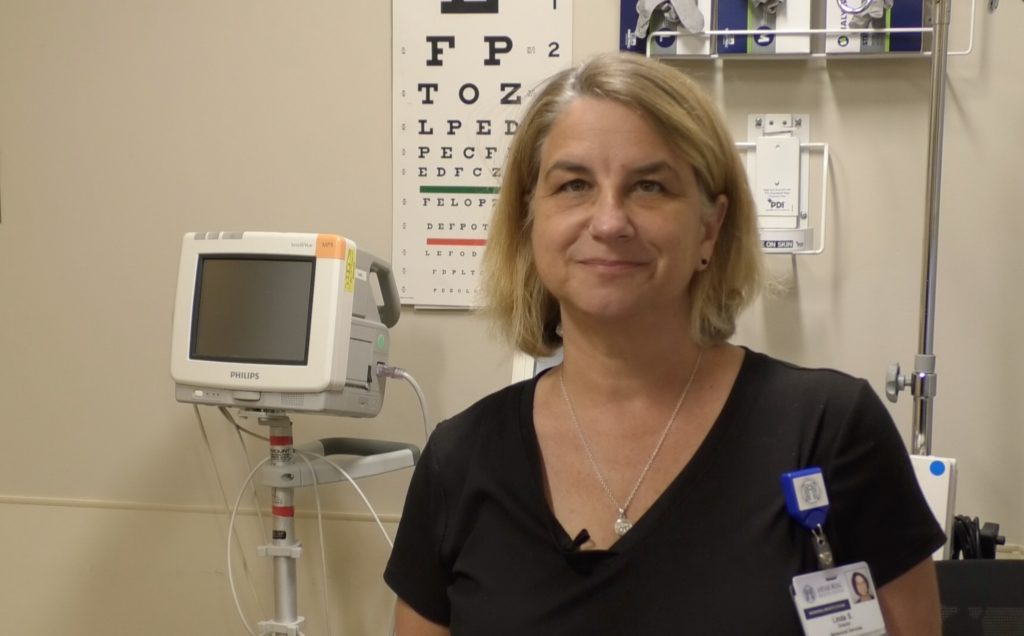Washington County law enforcement is learning a new approach to dealing with people in crisis
By: Reese Thompson
Posted on:
MARIETTA, Ohio (WOUB) — Washington County law enforcement officers are learning how to steer people in a mental health crisis away from the criminal justice system by getting them the help they need.
The county offers crisis intervention training, a voluntary 40-hour program that prepares first responders to safely resolve situations involving mental illness in a non-violent manner.
Linda Sistrunk, Marietta Memorial Hospital director of behavioral health services, discussed the ideal outcome of the training.
“We want our law enforcement to be champions of people who are struggling with mental health and substance use,” she said.
Sistrunk said a rise in cases has resulted from the absence of public services for people who have mental health issues or substance use disorders.
“In the past four years, we’ve seen about a 25% to 30% increase in patients who are coming into the emergency room for mental health and substance use crisis,” she said.

“It’s a generational pattern now,” she said. “We have grandparents, parents and children who are all addicted.”
With the increase of drug use cases, the number of people entering the criminal justice system has increased in the past several decades. By changing law enforcement’s approach to related crises, officials hope this will help give individuals dealing with mental health issues the proper care.
George Goddard, assistant director of Washington County Behavioral Health Board, explained the importance of the different approach.
“By de-escalating a situation and actually finding out that it is a mental health issue rather than it being someone who is just willfully breaking the law, there’s an opportunity to connect them to services,” he said.
Marietta Police Detective AJ Linscott said the training teaches the department’s officers a more compassionate approach to interacting with people in crisis.
“Slowing things down and talking to them,” he said. “Not being judgmental, you know, just meet them where they are at.”
Officials hope connecting someone in crisis to the right resources will help break the cycle of people repeatedly entering the criminal justice system because of mental health challenges.
“If you are approaching somebody with the idea that I can help this person rather than they need to stop what they are doing,” Goddard said, “that’s a mind shift.”
Crisis intervention training creates partnerships between law enforcement agencies and mental health systems to teach officers how to help individuals in crisis access mental health services.
“Instead of each of us diverting to the other one to find the solution, we all work together to come up with a reasonable solution for the patient that gives them the best probable outcome,” Sistrunk said. “The long-term stability is much more effective with the CIT program and collaboration.”
List of mental health resources:
- Washington County Behavioral Health Board, (740) 374-6990 or visit www.wcbhb.org
- Washington County First Responder Mental Health, (740) 525-3092
- Washington County Recovery Engagement Team, call or text (740) 538-2379
- Rigel Recovery Services, (740) 371-5476
- MyRecoveryLink, visit myrecoverylink.com
- Local Mental Health Crisis Hotline, (740) 373-8240
- Ohio and West Virginia Mental Health Hotline, dial 211 or visit 211.org
- Ohio Crisis Line, (888) 475-8484
- National Suicide Prevention Hotline, (800) 273-TALK (8255)
- Suicide and Crisis Lifeline, dial 988 or chat 988lifeline.org

